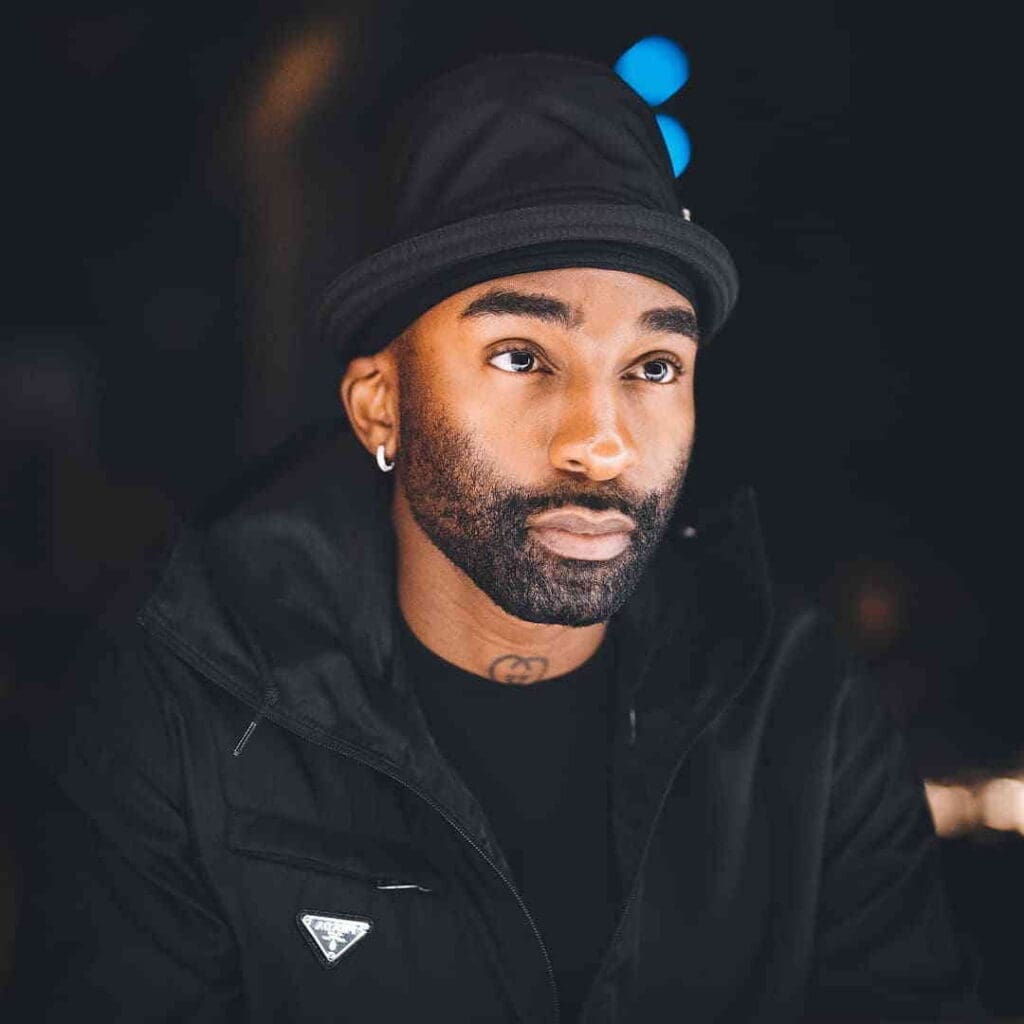
Early Life and Background
Rikhado Makhado was born in KwaMashu, a township near Durban, South Africa. Raised in a community marked by its rich cultural heritage and challenges, Riky Rick’s upbringing played a pivotal role in shaping his artistic vision. He attended Hilton College, a prestigious institution that provided him with a broader perspective on life and art.
Education and Early Influences
Education and Early Influences
Makhado attended Hilton College, a prestigious private school in KwaZulu-Natal, where he was exposed to diverse cultures and ideas. His interest in music was sparked during his youth, and he began experimenting with various genres, blending traditional African sounds with contemporary hip-hop. A pivotal moment in his musical journey occurred when he attended a recording studio session with Bongani Fassie, which inspired him to pursue music professionally. He initially gained attention with his single “Barbershop,” featuring Da L.E.S., which marked the beginning of his rise in the South African music scene.
Musical Career and Achievements
Riky Rick’s breakthrough came in 2014 with the release of his hit single “Nafukwa,” which garnered widespread acclaim and established him as a prominent figure in South African hip-hop. The following year, he released his debut studio album, Family Values, on April 3, 2015. The album received positive reviews and was certified Platinum by the Recording Industry of South Africa (RiSA) for selling over 50,000 units. It featured collaborations with artists such as Cassper Nyovest, Okmalumkoolkat, Zano, and Black Motion.
In addition to his music, Riky Rick was known for his entrepreneurial ventures. He founded Cotton Club Records, his own record label, and was a member of the collective Boyz N Bucks. He also launched Cotton Fest, an annual music festival that celebrated South African youth culture and fashion.
Awards and Recognition
Throughout his career, Riky Rick received numerous accolades for his contributions to music and culture. At the 2021 South African Hip Hop Awards, he won the Best Collaboration award and was named MVP/Hustler of the Year. He was also nominated for Artist of the Decade. Internationally, he was posthumously honored with the inaugural Global Visionary Award at the 2022 BET Hip-Hop Awards, recognizing his efforts to expand the culture of hip-hop on the global stage.
Personal Life and Mental Health Advocacy
Riky Rick was married to Bianca Naidoo, with whom he had two children. In 2020, he opened up about his struggles with depression and addiction, revealing that he had battled these issues following the death of his father. He spoke candidly about the challenges of living without a father figure and the impact it had on his mental health. His openness about these struggles resonated with many and sparked conversations about mental health in the African music industry.
Legacy and Cultural Impact
Riky Rick’s influence extended beyond music. He was a fashion icon, known for his unique style and bold fashion choices, which earned him recognition in the fashion industry. He was also a mentor to emerging artists, using his platform to support and uplift the next generation of musicians. His death on February 23, 2022, at the age of 34, was a significant loss to the South African music community. He passed away in Johannesburg, and his death was ruled a suicide, bringing attention to the importance of mental health awareness.
Discography
- Studio Albums:
- Family Values (2015) – Certified Platinum by RiSA.
- Boss Zonke Forever (2025) – Posthumous release.
- EPs:
- Scooby Snacks EP (2017)
- Stay Shining EP (2017)
- Ungazincishi (2020)
- Mixtapes:
- The Comeback Kid (2011)
Conclusion
Riky Rick’s legacy as a musician, entrepreneur, and cultural icon continues to inspire many. His contributions to South African music and his advocacy for mental health have left an indelible mark on the industry. Through his music and actions, he demonstrated the power of authenticity and the importance of addressing mental health issues within the entertainment industry.





